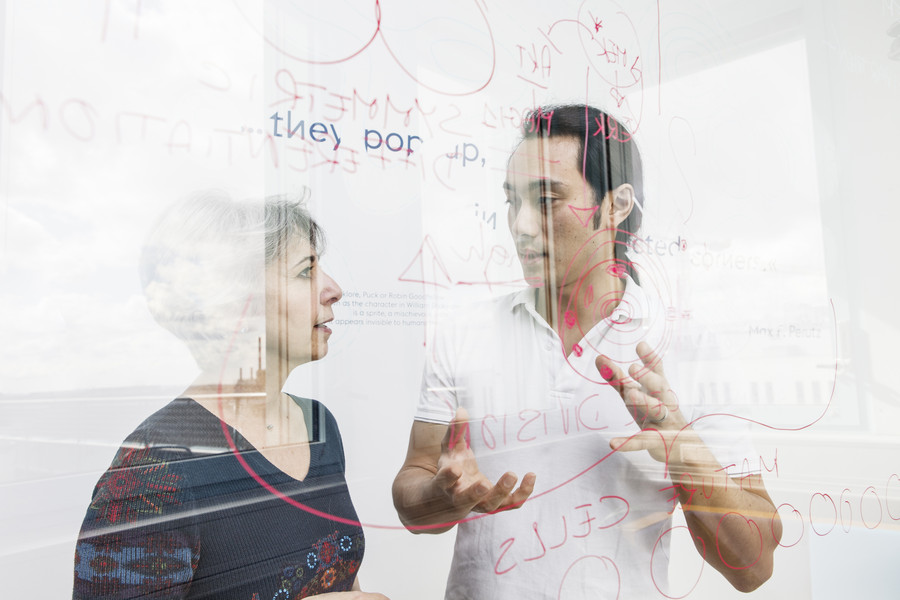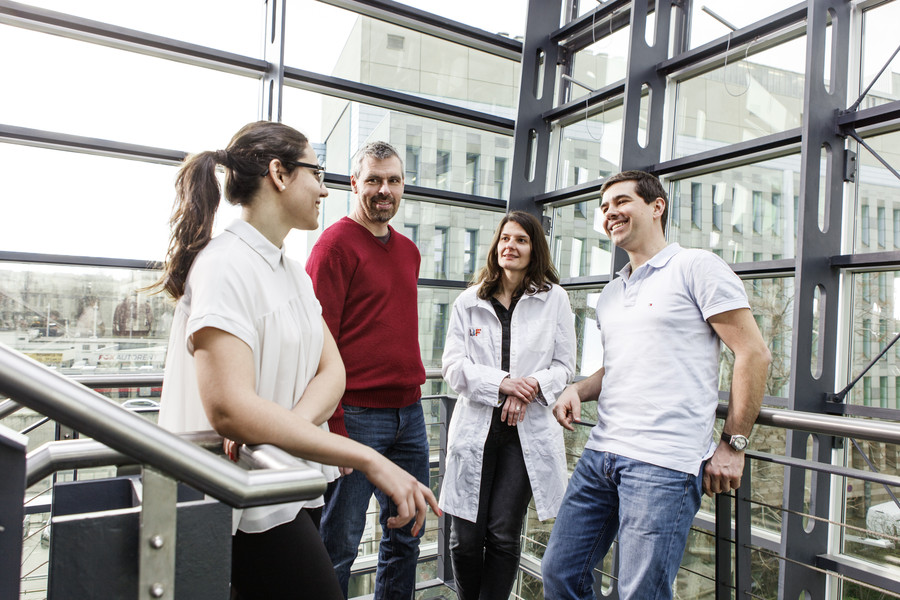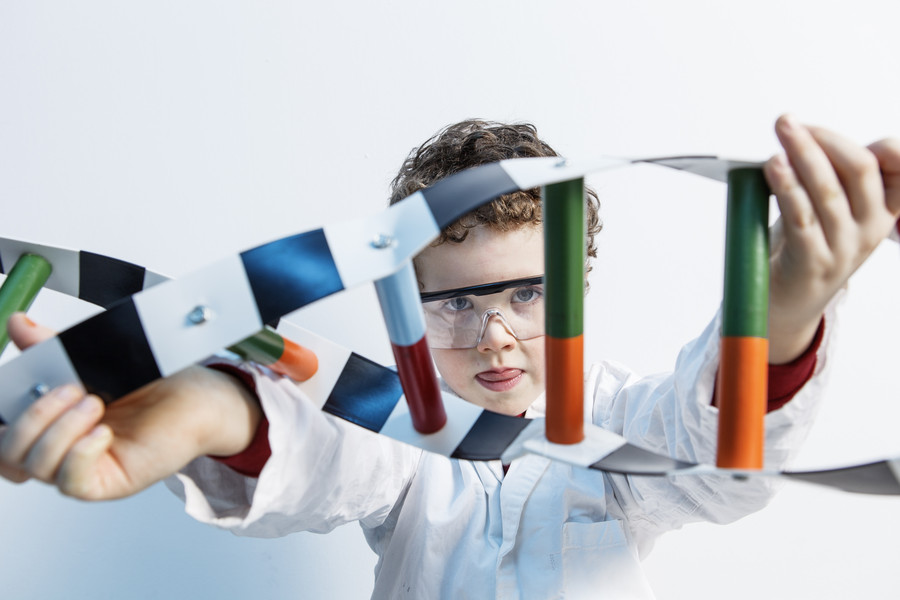Postdoc
Moving towards independence
The Max Perutz Labs are dedicated to inspiring and enabling the next generation of scientists. Postdocs benefit from a supportive environment, coaching, and tailored workshops aimed at their career development.

The Max Perutz Labs are dedicated to inspiring and enabling the next generation of scientists. Postdocs benefit from a supportive environment, coaching, and tailored workshops aimed at their career development.


Our more than 100 PhD students from over 30 countries participate in the research activities of the Max Perutz Labs. We support their curiosity and dedicated work by providing excellent facilities, mentoring, and high-quality seminars with renowned international experts from all fields of molecular biology.
Max Perutz Labs is part of the Vienna BioCenter, a vibrant life science cluster in the heart of Europe in one of the most liveable cities in the world. The Campus is home to four research institutes and numerous biotech companies. Many campus-wide social activities create an environment for informal exchange and networking between researchers. The Vienna BioCenter also offers on-site child care, ensuring compatibility of career and family.

Vienna is the capital of Austria and the economic, cultural, and educational centre of the country. Vienna combines the amenities of a big city with close proximity to the beautiful landscape of the Wienerwald (Vienna Forests) and the Danube River. The city’s affordable and convenient public transport services, outdoor restaurants and markets together with a large international community make it a great place to live.